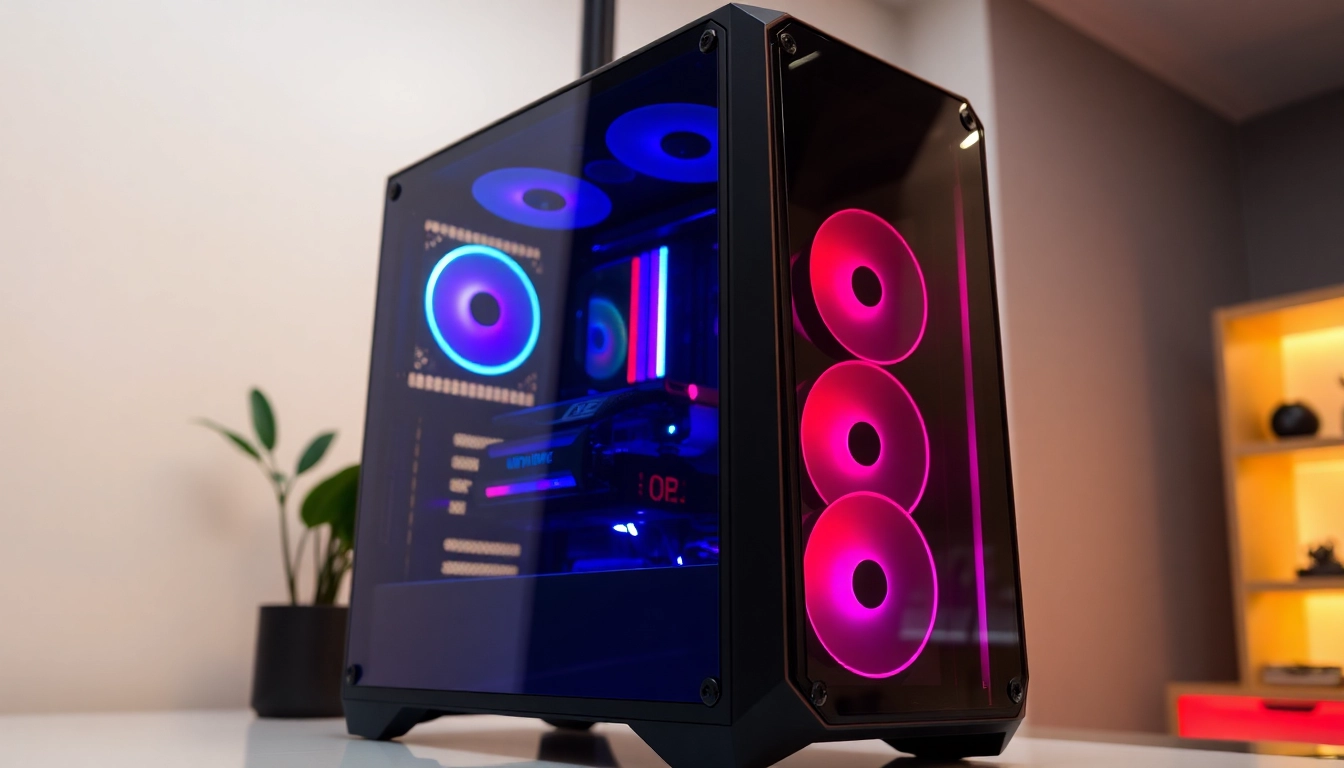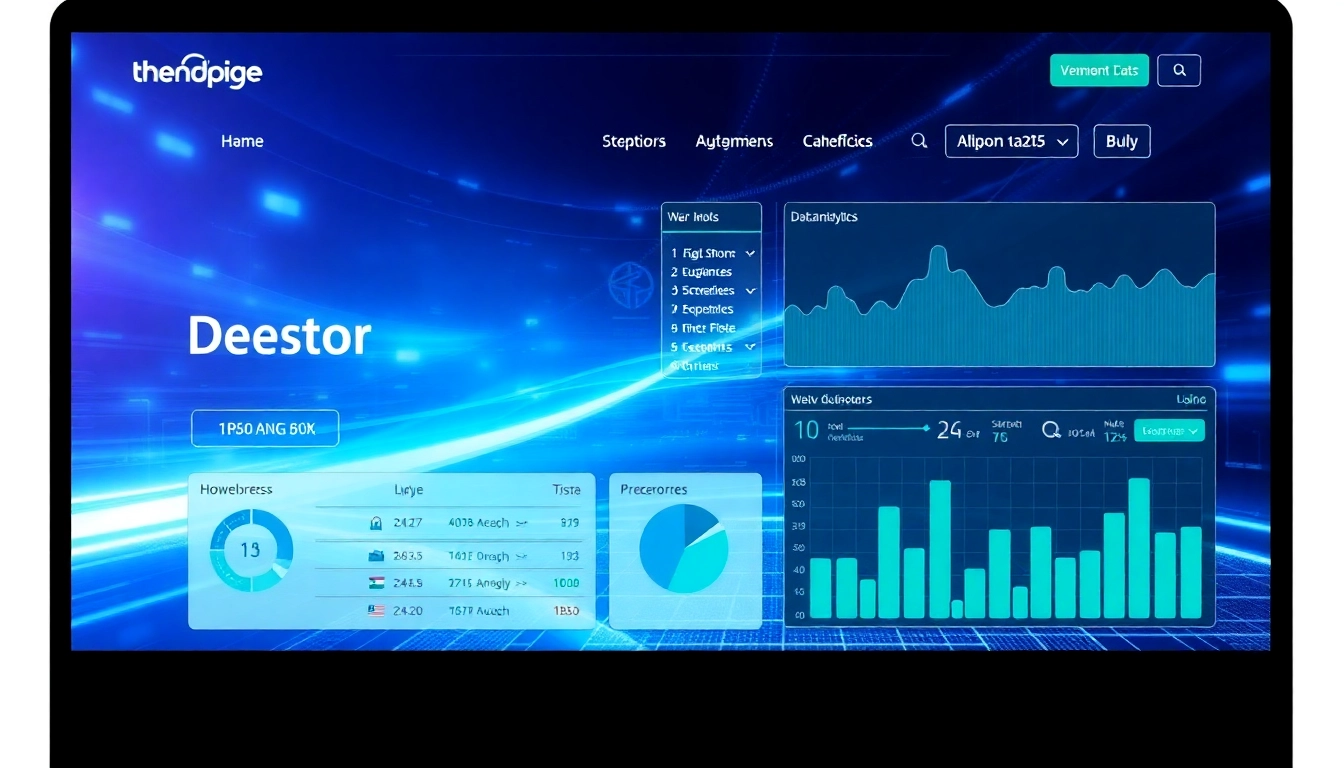Understanding the Role of a PC CASE Manufacturer
When sourcing components for a personal computer, the significance of selecting a PC CASE Manufacturer cannot be overstated. PC cases are the foundation of any computer build; they ensure that components are housed securely while providing necessary cooling and airflow. An effective PC case manufactured with high-quality standards can significantly enhance the overall performance and longevity of your system. This article will delve into the intricacies of what makes a manufacturer reputable, the key features to consider when choosing a case, and the evolving landscape of PC case manufacturing.
What Defines a Quality PC Case?
A quality PC case does not merely serve as a shell for your components; it plays a crucial role in aesthetics, airflow, cable management, and expandability. Here are the fundamental aspects that define a high-quality PC case:
- Material Quality: The material of the case affects durability and weight. Steel, aluminum, and tempered glass are commonly used.
- Airflow Design: A case should promote effective airflow to keep components cool. Design features such as mesh panels and multiple fan positions are vital.
- Cable Management: A well-designed case allows for clean cable routing, which not only enhances the aesthetic but also improves airflow.
- Expansion Options: Quality cases provide options for additional drives, GPUs, and cooling systems, accommodating future upgrades.
- Build Quality: The assembly processes and standards used by manufacturers determine the longevity and robustness of the case.
Key Features to Look for in PC Cases
When selecting a PC case, several features should be prioritized:
- Size: Compatibility with the motherboard form factor (ATX, Micro-ATX, Mini-ITX) is essential.
- Cooling Support: Cases should accommodate the required number of fans or radiators for the cooling system chosen.
- Accessibility: Features like removable dust filters and easy-to-access drive bays make maintenance easier.
- Modularity: A modular design can help create versatile configurations, ideal for custom builds.
- Noise Dampening: Some cases come equipped with sound-deadening materials, reducing operational noise from components.
How Manufacturers Ensure Durability and Performance
Manufacturers utilize a variety of techniques and quality control measures. Rigorous testing protocols include drop tests, temperature endurance checks, and longevity simulations to ensure cases sustain environmental stresses. Additionally, manufacturers often incorporate innovative technologies, such as anti-vibration systems and custom thermal solutions, to enhance performance.
Exploring Different Types of PC Cases
The PC case landscape is diverse, with various types catering to different user needs. Understanding which type fits your requirements can simplify the building process and enhance performance.
Full Tower vs. Mid Tower: Which Is Right for You?
Full towers offer greater expandability, housing more components and better cooling options, making them ideal for high-performance gaming rigs or workstation setups. Conversely, mid towers balance size, expandability, and cost-effectiveness, suitable for most users building a gaming or general-use PC.
- Full Tower: Typically over 20 inches tall, these cases allow for extensive airflow options and support for large components, including multiple GPUs.
- Mid Tower: Generally between 15-20 inches tall, mid towers can accommodate standard motherboards and provide adequate cooling without taking up excessive space.
Specialized Cases: Gaming, Mini-ITX, and More
Specialized PC cases cater to niche markets, providing tailored solutions:
- Gaming Cases: Designed with aesthetics and performance in mind, these typically feature RGB lighting and enhanced airflow.
- Mini-ITX Cases: Compact cases for high-performance setups in small form factors. They are ideal for users with limited space or those looking to have a portable PC.
- Silent Cases: Specifically engineered to minimize noise output, ideal for content creators who prioritize a quiet workspace.
Custom Cases: Tailoring Your Build to Fit
Custom PC cases are gaining traction among enthusiasts who require specific configurations. Brands like Corsair and Lian Li offer customers the chance to create a case that meets their precise specifications, allowing for unique builds that reflect individual preferences.
Top PC CASE Manufacturers in the Industry
When it comes to selecting a PC case, understanding the manufacturers behind the products is crucial. This section provides insights into the most reputable brands in the market today.
Leading Brands to Consider
Several manufacturers stand out within the PC case industry:
- Corsair: Known for their proprietary designs and RGB solutions, they provide a wide range of options suitable for gamers and builders alike.
- Lian Li: Renowned for high-quality aluminum cases that blend aesthetics with functional design.
- Thermaltake: Offers innovative designs and a strong focus on cooling solutions for serious gamers and PC builders.
- Fractal Design: Prominent for minimalistic designs and efficiency in airflow and noise reduction.
Comparative Analysis of Popular Manufacturers
A comparative analysis highlights the strengths and weaknesses of various companies. Corsair, while expensive, offers unmatched features and aesthetics, while Lian Li is celebrated for their high-quality aluminum cases that stand the test of time. Brands like Thermaltake provide highly customizable options, ensuring enthusiasts can personalize their builds effectively. On the other hand, Fractal Design excels in performance while maintaining a budget-friendly approach.
Emerging Names in the PC Case Market
Emerging brands are revolutionizing the case manufacturing industry. Companies like HYTE are known for their stylish cases equipped with modern features aimed at gamers. Additionally, smaller manufacturers are gaining traction due to their focus on sustainability and innovative design, offering custom options to appeal to niche audiences.
Building Your PC: Choosing the Right Case
Choosing the right PC case is pivotal in the building process. This section delves into the critical considerations that should influence your decision.
Assessing Compatibility with Other Components
Compatibility is key when selecting a PC case. It is essential to ensure that the case can accommodate the motherboard size, GPU length, and cooling solutions without hindrance. When planning a build, consider the dimensions and specifications of all components to avoid fitting issues.
Cooling Solutions: Airflow and Temperature Management
Effective cooling is fundamental to a PC’s performance. Evaluate the case design for airflow, including fan mounting options and potential radiator placements for liquid cooling systems. Users should aim for a case that supports an adequate number of intake and exhaust fans to maintain optimal thermal performance.
Budgeting for Your PC Case: What to Consider
The budget for a PC case varies greatly depending on features and brand reputation. While it may be tempting to choose the cheapest option, it’s often beneficial to invest in a case that offers superior quality and longevity, which can ultimately save money in the long run. Additionally, remember to budget for accessories and cooling solutions, as these can impact overall performance.
Future Trends in PC CASE Manufacturing
As technology evolves, so does the world of PC case manufacturing. This section discusses anticipated trends that may shape the industry moving forward.
Innovations in Material and Design
Future PC cases are expected to utilize advanced materials that enhance thermal performance while reducing weight. Innovations in modular design will allow for even easier customization and upgrades, while the integration of smart technology for temperature and airflow management is on the horizon.
Sustainability in PC Case Manufacturing
With an increasing focus on sustainability, manufacturers are exploring eco-friendly materials and production processes. This shift is driven not only by consumer demand but also by regulatory changes aimed at reducing electronic waste. Expect to see a rise in companies that utilize recycled materials without compromising on quality or performance.
The Impact of Gaming Trends on Design Choices
Gaming trends, particularly eSports and streaming, are driving aesthetic and functional design changes. Features that allow for better cable management and dynamic RGB lighting are becoming mainstream, while cases are increasingly designed to harmonize with high-performance components, integrating those elements into the design for both functionality and visual appeal.



